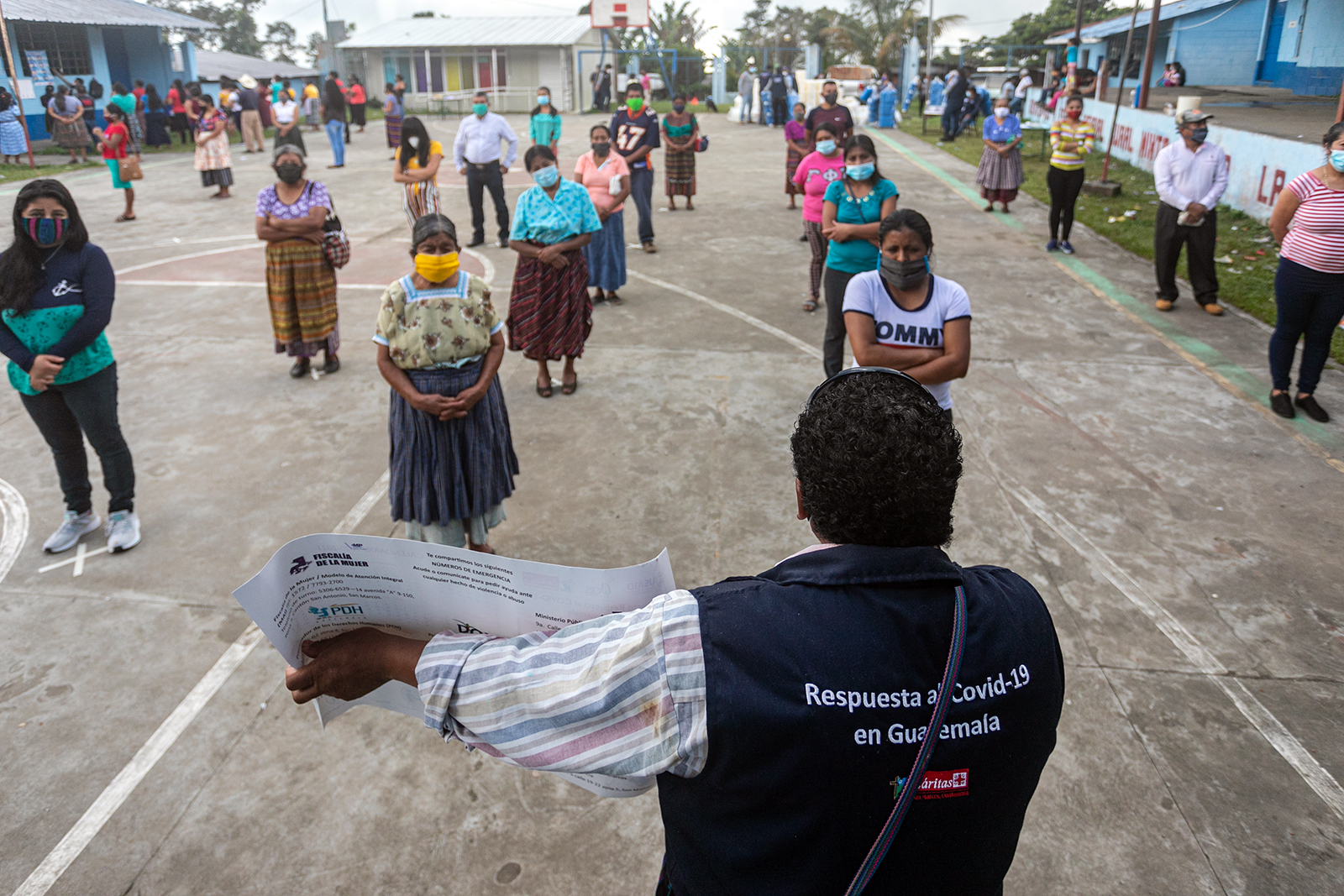Religious Charitable Activities And Tax Benefits
In recent years, religious charitable activitieshave become a cornerstone of support for vulnerable communities worldwide. Religious organizations, driven by their commitment to philanthropy and social welfare, play a vital role in addressing societal challenges. What many might not realize is the symbiotic relationship between these charitable endeavors and tax benefits. In this article, we delve deep into the intricate web of Religious Charitable Activitiesand Tax Benefits, exploring how these initiatives not only transform lives but also provide financial advantages to those who contribute.
Religious Charitable Activities
At the core of every religious institution lies a profound commitment to serve humanity. Religious charitable activities represent the embodiment of compassion, empathy, and the fundamental belief in helping those in need. These initiatives, undertaken by diverse religious organizations, form the bedrock of social welfare, addressing a multitude of challenges faced by communities around the world.
Compassion In Action
Religious charitable activities manifest in various forms, each driven by the unwavering spirit of compassion. One of the most visible ways in which religious organizations make a difference is by providing shelter and sustenance to the homeless. The simple act of offering a warm meal or a safe place to sleep can restore dignity and hope to those who have lost their way.
Education stands as another cornerstone of these charitable efforts. Religious institutions often establish schools and educational programs, ensuring that knowledge becomes a beacon of light for the underprivileged. By imparting education, these organizations empower individuals, equipping them with the skills and wisdom needed to create a better future for themselves and their communities.
In the realm of healthcare, religious charitable activities take the form of clinics, hospitals, and medical missions. These institutions provide essential medical services to those who lack access to proper healthcare, promoting overall well-being and saving lives in the process. Whether it's a routine check-up, life-saving surgery, or preventive care, these services bridge the gap between sickness and health.
Extending A Helping Hand In Crisis
Beyond the routine, religious charitable activities extend their reach during times of crisis. Disaster relief efforts orchestrated by religious organizations provide immediate assistance to communities ravaged by natural calamities. From earthquakes to floods and pandemics, these organizations mobilize swiftly, offering food, clean water, medical aid, and shelter to the affected populations.
Rehabilitation programs represent another facet of religious charitable activities. They focus on helping individuals overcome challenges such as addiction, homelessness, or trauma. By offering counseling, vocational training, and emotional support, these programs enable people to rebuild their lives, fostering resilience and self-sufficiency.
Advocates For Social Justice
Religious institutions are often at the forefront of advocacy for social justice issues. Whether it's promoting gender equality, combating discrimination, or championing human rights, these organizations leverage their moral authority to drive positive change. Through awareness campaigns, education, and grassroots activism, they challenge societal norms and work towards a more inclusive and equitable world.
Historic Roots
The origins of religious charitable activities can be traced back to the very essence of faith – the universal principles of love, compassion, and empathy that permeate diverse religious traditions. Throughout history, religious institutions have played a pivotal role in shaping societal values and addressing the needs of the less fortunate. These historic roots, deeply embedded in the tapestry of humanity, have nurtured a legacy of philanthropy and community service that continues to thrive in the modern world.
Ancient Foundations
In ancient civilizations, religious leaders and institutions assumed the responsibility of caring for the vulnerable members of society. In ancient India, for instance, Buddhists and Jains established charitable institutions to provide food, shelter, and medical care to pilgrims and the impoverished. Similarly, ancient Greek and Roman temples served as centers of aid, offering assistance to the sick and needy.
The Abrahamic religions– Judaism, Christianity, and Islam – also have rich historical traditions of charitable giving. In Judaism, the concept of "tzedakah" emphasizes the moral obligation to give to those in need, promoting social justice and righteousness. Early Christian communities, inspired by the teachings of Jesus Christ, practiced communal living and shared resources to support the less fortunate. In Islam, the practice of "zakat" requires Muslims to contribute a portion of their wealth to help the needy, emphasizing social solidarity and economic justice.
Medieval Altruism
During the medieval period, religious orders and monastic communities took up the mantle of charitable activities with renewed fervor. Monasteries became centers of education, healthcare, and refuge for travelers, preserving knowledge and providing essential services in an often tumultuous world. The Knights Hospitaller, a medieval Catholic military order, exemplified the spirit of benevolence by establishing hospitals and caring for the sick and injured, irrespective of their faith or background.
The Enlightenment Era And Social Reform
The Enlightenment era ushered in an age of enlightenment and social reform, challenging traditional norms and advocating for individual rights and social equality. Religious leaders and thinkers played a significant role in these movements, championing causes such as abolitionism, women's rights, and education reform. The Quakers, for example, actively opposed slavery and advocated for its abolition, paving the way for a more just and compassionate society.
Modern-Day Philanthropy
In the modern era, religious charitable activities have evolved and diversified, adapting to the changing needs of society. Today, religious organizations operate schools, hospitals, orphanages, and humanitarian missions on a global scale. They respond swiftly to natural disasters, provide aid to refugees, and champion human rights causes, embodying the timeless principles of compassion and social justice.
The Enduring Legacy
The historic roots of religious charitable activities have left an indelible mark on the collective conscience of humanity. Across cultures and faiths, the fundamental belief in helping others, driven by religious teachings, continues to inspire countless individuals and organizations. This enduring legacy serves as a testament to the transformative power of faith and altruism, reminding us of the shared responsibility we bear toward one another.
Tax Benefits For Religious Charitable Activities
1. Tax-Exempt Status
Religious organizations, by their nature, are often eligible for tax-exempt status. This means that they are not required to pay income taxes on the donations they receive, allowing them to allocate more resources to charitable endeavors. Congregations and donors can claim deductions for their contributions, providing an incentive for continued giving.
2. Deductions For Donors
Individuals and businesses contributing to religious charitable activities can often deduct their donations from their taxable income. This encourages philanthropy, fostering a culture of giving within communities. Donors can receive tax benefits while supporting causes they are passionate about, making their contributions more impactful.
3. Property Tax Exemptions
Religious organizations often own properties for worship, education, and outreach activities. Many jurisdictions offer property tax exemptions for these facilities, further reducing the financial burden on religious institutions. This exemption allows churches, temples, mosques, and other places of worship to focus their funds on charitable initiatives rather than property taxes.
4. Sales Tax Exemptions
In certain regions, religious organizations are exempt from paying sales taxes on goods and services they purchase for charitable activities. This exemption extends to items such as food, clothing, and medical supplies, enabling religious charities to stretch their budgets and reach more people in need.
Compliance And Best Practices In Religious Charitable Activities
Ensuring the success and sustainability of religious charitable activities goes hand in hand with adhering to legal and financial regulations. While the prospect of tax benefits offers a valuable incentive, it also demands a commitment to compliance and best practices within religious organizations. By upholding these standards, these institutions can maintain transparency, foster accountability, and continue making a positive impact on society.
Transparency And Financial Records
Transparency forms the cornerstone of ethical charitable practices. Religious organizations engaged in charitable activities must maintain meticulous financial records, documenting every donation, expenditure, and transaction. By doing so, they not only fulfill legal obligations but also build trust with their stakeholders, including donors, congregants, and the wider community. Transparent financial reporting provides a clear overview of the organization's financial health and ensures that resources are allocated efficiently.
Adherence To Reporting Requirements
Compliance with reporting requirements is essential to maintain tax-exempt status and demonstrate accountability. Religious institutions are often subject to specific regulations regarding reporting, and failure to comply can lead to legal consequences. By staying informed about reporting deadlines and submitting accurate, timely reports, organizations can avoid legal complications and continue their charitable work unhindered.
Responsible Use Of Donations
Donors contribute to religious charitable activities with the expectation that their funds will be used for the intended purposes: aiding those in need and supporting community initiatives. Religious organizations have a moral and legal obligation to ensure that donations are utilized responsibly.
This includes allocating funds to designated projects, managing overhead costs efficiently, and avoiding any misuse of resources. By demonstrating financial prudence, organizations uphold their integrity and honor the trust placed in them by their supporters.
Upholding Organizational Integrity
Sound financial practices not only serve the organization’s immediate needs but also safeguard its long-term integrity. By implementing robust internal controls, conducting regular audits, and seeking professional financial advice, religious institutions can ensure that their charitable activities remain sustainable and effective. Upholding organizational integrity not only fosters donor confidence but also sets an example for ethical conduct within the wider community.
To exemplify these best practices in action, Fellowship Bible Churchin Waco, Texas, stands as a testament to transparent and accountable charitable activities. Their commitment to compliance and financial responsibility is reflected in their dedicated ministry efforts. To learn more about their impactful initiatives and how they maintain the highest standards of integrity, visit their official website, Fellowship Bible Church - Ministry.
Social Responsibility - Religious Organizations As Agents Of Change
Religious organizations, rooted in faith and driven by a deep sense of social responsibility, have long been recognized as powerful agents of positive change within communities. Their inherent commitment to compassion, justice, and service positions them uniquely as catalysts for transformative societal impact. In this section, we explore the profound ways in which religious organizations serve as agents of change, driving social responsibility initiatives that touch lives and inspire meaningful progress.
Fostering Compassion And Empathy
At the heart of religious teachings lies the call for compassion and empathy towards fellow human beings. Religious organizationschannel these core values into practical action, creating initiatives that address poverty, hunger, homelessness, and healthcare disparities. By fostering compassion, they not only alleviate immediate suffering but also cultivate a culture of empathy, encouraging individuals to understand the challenges faced by others and work together to overcome them.
Promoting Education And Knowledge
Education has the power to break the cycle of poverty and empower individuals to lead fulfilling lives. Religious organizations recognize the importance of education and often establish schools, vocational training centers, and scholarship programs. By promoting access to quality education, they equip individuals with the skills and knowledge needed to secure better opportunities, thereby transforming not only individual lives but entire communities.
Advocating For Human Rights And Social Justice
Religious teachings frequently emphasize the inherent worth and dignity of every person. Religious organizations leverage these principles to advocate for human rights, social justice, and equality. They stand against discrimination, oppression, and injustice, working tirelessly to create inclusive societies where everyone is treated with fairness and respect. Through awareness campaigns, lobbying efforts, and community engagement, religious organizations challenge societal norms and contribute to the fight for a more just world.
Environmental Stewardship And Sustainability
In recent years, many religious organizations have embraced the call for environmental stewardship. Recognizing the urgent need to address climate change and protect the planet, they initiate eco-friendly projects, promote sustainable practices, and raise awareness about environmental issues within their congregations and communities. By integrating environmental concerns into their social responsibility initiatives, these organizations inspire eco-conscious behaviors and contribute to the global effort to preserve the Earth for future generations.
Responding To Humanitarian Crises
Religious organizations are often among the first responders during humanitarian crises. Whether it's natural disasters, conflicts, or pandemics, they mobilize resources, volunteers, and expertise to provide immediate relief and support to affected communities. Through emergency aid, medical assistance, and long-term recovery efforts, these organizations demonstrate unwavering solidarity with those in crisis, offering hope and help in the face of adversity.
Religious Charitable Activities - FAQs
What Is An Example Of A Religious Charity?
An example of a religious charity is Catholic Relief Services (CRS), an international humanitarian organization operated by the Catholic Church. CRS provides assistance to people in need in more than 100 countries, regardless of race, religion, or nationality. They focus on various charitable activities, including emergency response, healthcare, education, and sustainable development projects, guided by their faith-based values and principles.
What Are Charitable Activities?
Charitable activities refer to actions or initiatives undertaken by individuals, organizations, or institutions to promote the well-being of others and contribute positively to society. These activities can include providing food, shelter, and healthcare to the homeless, supporting education and skill development programs, offering disaster relief, advocating for social justice, and addressing various community needs. Charitable activities are driven by the intention to improve the lives of others and make a positive impact on society.
What Is A Basic Religious Charity?
A basic religious charity typically refers to a religious organization or institution that engages in fundamental charitable activities based on the teachings of its faith. These activities often include providing assistance to the less fortunate, supporting community members in need, and promoting social welfare. Basic religious charities may operate food banks, shelters, educational programs, healthcare clinics, and other initiatives that align with their religious beliefs and values. These organizations play a crucial role in addressing immediate needs within their communities and embody the principles of compassion and altruism advocated by their respective religions.
Conclusion
Religious charitable activities play a pivotal role in fostering social change and supporting communities in need. The synergy between these altruistic endeavors and tax benefits not only encourages charitable giving but also enables religious organizations to amplify their impact. As individuals and communities continue to contribute to these causes, the positive effects reverberate far beyond immediate assistance, creating a legacy of compassion and philanthropy.
In summary, understanding the interplay between Religious Charitable Activities and Tax Benefits illuminates the profound impact these initiatives have on society. By promoting charitable giving and providing financial incentives, governments acknowledge the invaluable role religious organizations play in shaping a better, more compassionate world for all.





